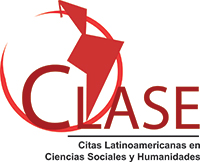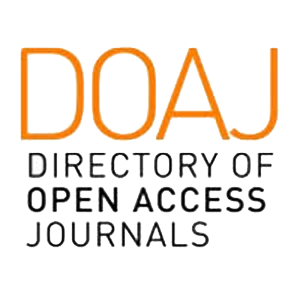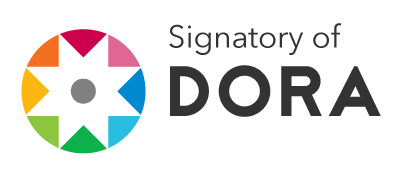Facturación comercial y flujos financieros ilícitos: un enfoque desde la teoría de juegos
Abstract
His essay analyzes the practice of trade mis-invoicing, understood as a deliberate strategy through which economic agents manipulate the declared values in international trade operations in order to evade taxes, shift capital, or exploit regulatory loopholes. Using game theory as an analytical framework, the paper models the behavior of agents who weigh the benefits of fraud against the risk of detection and applicable sanctions. Four types of mis-invoicing (A–D) are examined, along with scenarios of repeated interaction, collusion between counterparties, and abusive transfer pricing. The paper discusses available empirical evidence and methodological tools such as the Partner Country Method (PCM) and the Price Filter Method (PFM), which help adjust risk perception and support policy recommendations. Among the main findings, it is shown that commercial fraud is not a random phenomenon but a strategic decision influenced by the institutional environment, and that calibrated random audits, reputational incentives, and inter-institutional cooperation can shift compliance equilibria. Moreover, the study highlights that trade mis-invoicing (TM) should be understood beyond statistical estimations, as a rational behavior that requires comprehensive regulatory interventions.
Downloads
References
Carrère, C., y Grigoriou, C. (2014). Can mirror data help to capture informal international trade? UNCTAD Working Paper No. ITCD/TAB/65. https://unctad.org/system/files/official-document/itcdtab65_en.pdf
Comisión de las Naciones Unidas para el Derecho Mercantil Internacional (CNUDMI). (2013). Detección y prevención del fraude comercial: Indicadores de fraude comercial. Naciones Unidas.
CEPAL. (2016). Flujos financieros ilícitos derivados del comercio internacional en América Latina y el Caribe. Comisión Económica para América Latina y el Caribe. https://hdl.handle.net/11362/40921
Choi, J. P. (2018). Trade misinvoicing and illicit financial flows. Journal of Development Economics, 134, 58–76. https://doi.org/10.1016/j.jdeveco.2018.04.003
Cobham, A., y Janský, P. (2019). Measuring misalignment: The location of US multinationals’ economic activity versus the location of their profits. Development Policy Review, 37(1), 91–110.
Fudenberg, D., y Maskin, E. (1986). The folk theorem in repeated games with discounting or with incomplete information. Econometrica, 54(3), 533–554. https://doi.org/10.2307/1911307
Forstater, M. (2018). Illicit financial flows, trade misinvoicing, and multinational tax avoidance. Center for Global Development. https://www.cgdev.org/publication/illicit-financial-flows-trade-misinvoicing-and-multinational-tax-avoidance
Global Financial Integrity y TrustAfrica. (2018). Tax Avoidance, Tax Evasion and Trade Misinvoicing: Risks to Senegal’s Mining Sector. Washington, D.C.: Global Financial Integrity.
Kellenberg, D. K., y Levinson, A. (2016). Misreporting trade: Tariff evasion, corruption, and auditing standards (NBER Working Paper No. 22593). National Bureau of Economic Research. https://www.nber.org/papers/w22593
Nitsch, V. (2012). Trade misinvoicing: The dark side of world trade. The World Economy, 35(3), 327–340. https://doi.org/10.1111/j.1467-9701.2011.01397.x
OECD (2022), Directrices de la OCDE aplicables en materia de precios de transferencia a empresas multinacionales y administraciones tributarias 2022, OECD Publishing, Paris, https://doi.org/10.1787/7063add0-es.
Reuter, P. (Ed.). (2012). Draining development? Controlling flows of illicit funds from developing countries. Washington, DC: World Bank. http://documents.worldbank.org/curated/en/305601468178737192
Tirole, J. (1988). The theory of industrial organization. Cambridge, MA: MIT Press.
UNCTAD & UNODC. (2020). Marco conceptual para la medición estadística de los flujos financieros ilícitos. Naciones Unidas. https://unctad.org/publication/conceptual-framework-statistical-measurement-illicit-financial-flows
WCO (World Customs Organization). (2018). Study report on illicit financial flows via trade mis-invoicing. World Customs Organization. https://www.wcoomd.org/en/media/newsroom/2018/november/wco-publishes-report-on-illicit-financial-flows-via-trade-mis-invoicing.aspx
WCO News. (2025). Tackling trade-based money laundering: The UK Government’s Approach. WCO News, Issue 106 https://mag.wcoomd.org/es/magazine/wco-news-106-edicion-1-2025/tackling-trade-based-money-laundering-uk/
Copyright (c) 2025 Denarius

This work is licensed under a Creative Commons Attribution-NonCommercial-ShareAlike 4.0 International License.














